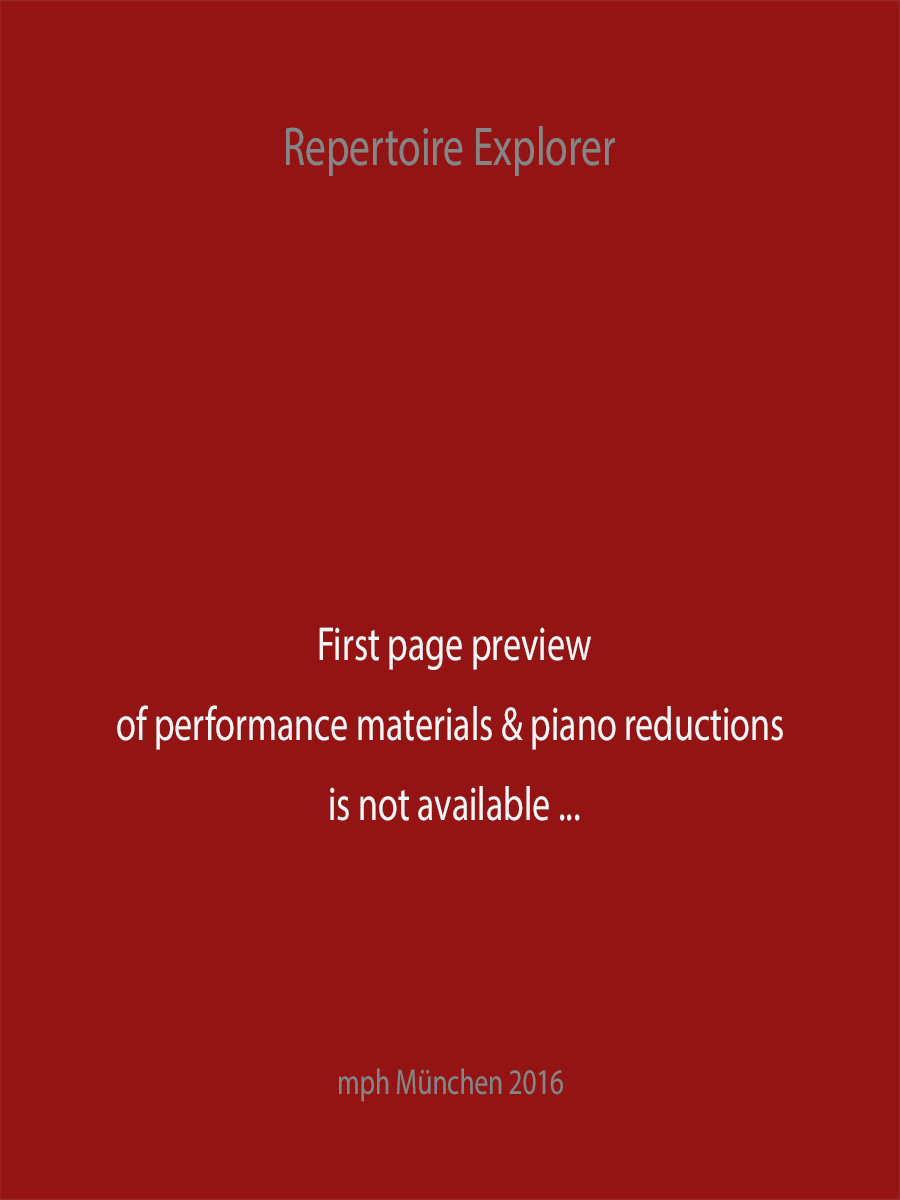Concerto in Eb major for Saxophone and String Orchestra Op. 109 (Piano Reduction/Solo)
Glazunov, Alexander
16,00 €
Preface
Glazunov, Alexander
Concerto in Eb major for Saxophone and String Orchestra Op. 109 (Piano Reduction/Solo)
Preface of the full score
Glasunow was born into a wealthy family in St. Petersburg, Russia. He started composing before his teenage years, came to the attention of Rimsky-Korsakov, who after tutoring him privately, considered him a colleague. Glasunow achieved international acclaim with performances throughout Europe before the end of the 19th century. During the last decade of the century he made numerous guest conducting appearance in addition to composing three symphonies, two string quartets and the still popular ballet Raymonda. In 1899 he was appointed a professor at the St. Petersburg Conservatory and in1905 was named director. As director he was instrumental in nurturing future talents, most notably Dmitri Shostakovich. Glasunow was considered one of the most important composers in the first decade of the 20th century, with numerous performances of his music throughout Europe and America and the awarding of honorary doctorates from the universities of Oxford and Cambridge. He left Russia (by then the Soviet Union) and his post at the Conservatory in 1928, touring in Europe and the United States as a conductor, and eventually settling in Paris. After his death in 1936, his music was largely neglected, deemed by many to be old fashioned and reactionary. Only recently, with the availability of excellent recordings of much of his music, has there been a reevaluation with judgments based on the quality of the music rather than musical style. The older generation of elite Russian conductors such as Mravinsky, Svetlanov and Rozhdestvensky performed and recorded his orchestral works with regularity. More recent international level maestros such as Valerie Gergiev, Jose Serebrier, Edo de Waart, Mikhail Pletnev and Neeme Järvi have also taken up his cause. The conductor Jose Serebrier, who recorded all his completed symphonies, perhaps best sums up Glazunov’s musical language: “Glazunov’s music doesn’t carry its heart on its sleeve like Mahler’s and it doesn’t explode hysterically like Tchaikovsky’s. Like a Russian Brahms, his music has deep emotions that are contained and controlled, sophisticated and subtle. His perfect compositional technique is obvious in every bar of music, as is the brilliant orchestration, done in typical late nineteenth- century style… We are accustomed to thinking of “great” composers as those who lead us along new paths and take chances and experiment. But music history is also filled with composers who weren’t preoccupied by moving forward, but wrote beautiful, meaningful and communicative music. A quick glance at any Glasunow score reveals a mastery of form and harmonic progression, an absolutely professional mind at work. “
The Saxophone Concerto was his last major work and completed in 1934. Glasunow already had a familiarity with the instrument as he had composed an extensive work for saxophone quartet in 1932
The Concerto was premiered in Sweden in Nov. 1934, with Sigurd Rascher as soloist. Rascher was the most important person in the development of the 20th century repertoire for the classical saxophone. More than 200 works were dedicated to him, many by important 20th century composers. His career as a soloist and champion of the instrument included performances with more than 250 orchestras and wind ensembles worldwide, including appearances with the Berlin Philharmonic, Boston Symphony, New York Philharmonic and the Concertgebouw. His stature as a virtuoso inspired composers to write music for him. He was tireless and relentless in pursuing composers, as Glasunow stated in a letter: “I started the piece in March under the influences of attacks rather than requests from the Danish (sic) saxophonist named Sigurd Rascher.” Not only did Rasher premiere the Concerto and perform it on numerous occasions, it was also included in his last solo performance in 1977, on the eve of his 70th birthday.
Glasunow never heard his Concerto performed publicly, as the first Paris performance did not occur until after his death. Unabashedly romantic, the piece lasts about fourteen minutes and has an honored place in the standard repertoire of the saxophone.
Karl Hinterbichler, University of New Mexico, 2014
For performance material please contact the publisher Belaieff, Frankfurt. Reprint of a copy from the Musikbibliothek der Münchner
Stadtbibliothek, Munich.
Score Data
| Edition | Repertoire Explorer |
|---|---|
| Genre | Solo Instrument(s) & Orchestra |
| Size | 225 x 320 mm |
| Specifics | Piano Reduction & Solo Saxophone |
| Printing | Reprint |
